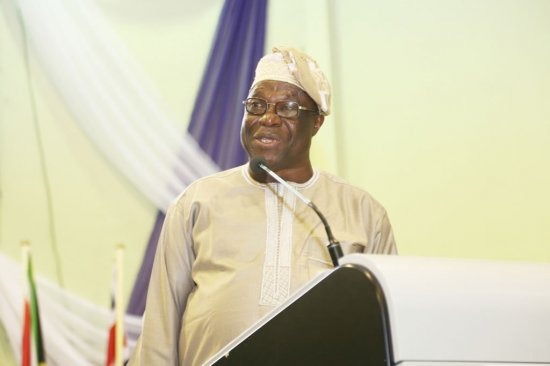Voluntary Climate Action: SPP Takes the Lead in GHG Emission Reporting
By Prof. Emmanuel Oladipo
The Society for Planet and Prosperity (SPP) recently took a bold and unprecedented step by publishing its 2024 Greenhouse (GHG) Emissions report.
I consider this as good innovation and I wish all institutions can be made to do same. Given the current circumstance where organisations still hesitate to quantify and disclose their emissions as required by the Nigerian Climate Change Act 2021, SPP’s transparent self-assessment stands out as a powerful example of voluntary climate action.
Despite section 24(1)(a) of the Climate Change Act 2021 mandates that private entities with 50 or more employees must implement measures to achieve annual carbon-emission reduction targets in line with the National Adaptation plan; over the years, many organisations – NGOs included – have treated these obligations as optional, due largely to weak enforcement. This is what makes SPP’s move to be significant and laudable at the moment.
This weak enforcement is even more curious considering that Section 24(2) of the Climate Change Act further empowers the Council to impose fines on organisations that fail to meet emission reporting and reduction targets. There is need for a strategic institutional approach to drive compliance as we don’t like to do things voluntarily
It is therefore highly commendable that when most organisations are not willing to be environmentally responsible – notably NGOs have largely focused on advocating for others to reduce emissions, and rarely scrutinizing their own practices – SPP’s voluntary climate action shines a light on two fundamental truths.
Firstly, it shows that without compulsion, voluntary climate action is possible. The climate advocacy landscape must start with self-reflection and accountability.
Secondly, by walking the talk, SPP, under the leadership of Professor Chukwumerije Okereke has shown that emission reporting is practicable. This has helped to lower the perceived barriers to emission reduction, making it easier for others to follow suit.
I encourage more organisations to emulate SPP’s leadership in this regard and transparently publish emissions data, set reduction targets, and outline their decarbonisation strategy.
Section 32(a) of the Nigerian Climate Change Act, already sets the target for National Council on Climate Change Secretariat (NCCCS) “to develop regulations requiring both private and public entities to report annually on greenhouse gas reductions and climate responsibilities” – this is where strategic institutional approach I advocated for becomes highly imperative.
Emission reduction reporting plays a vital role for organizations of all sizes in meeting the objectives established by the Paris Agreement.
Through the systematic measurement and disclosure of greenhouse gas emissions, organizations are able to pinpoint critical areas for enhancement, establish reduction targets, and monitor their progress over time.
Transparent reporting as demonstrated by SPP promotes accountability and motivates companies to embrace more sustainable practices.
Additionally, it allows governments and stakeholders to evaluate overall advancements towards both national and international climate objectives.
Collaborative initiatives in emission reporting can result in innovative solutions and technologies, ultimately aiding in a substantial decrease in emissions and assisting in the mitigation of climate change effects.
Prof. Emmanuel Oladipo is a renowned Climate Change Expert and Consultant






